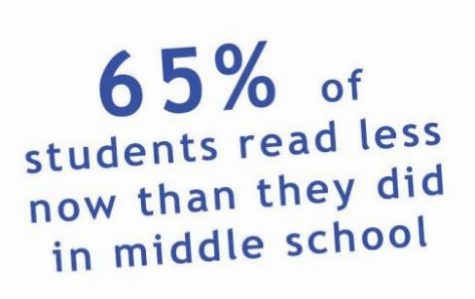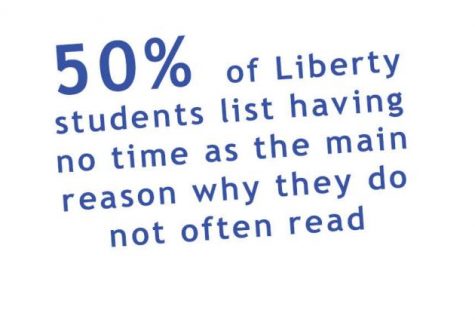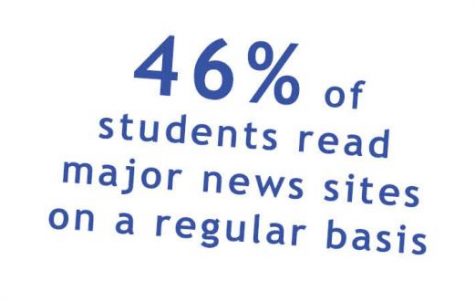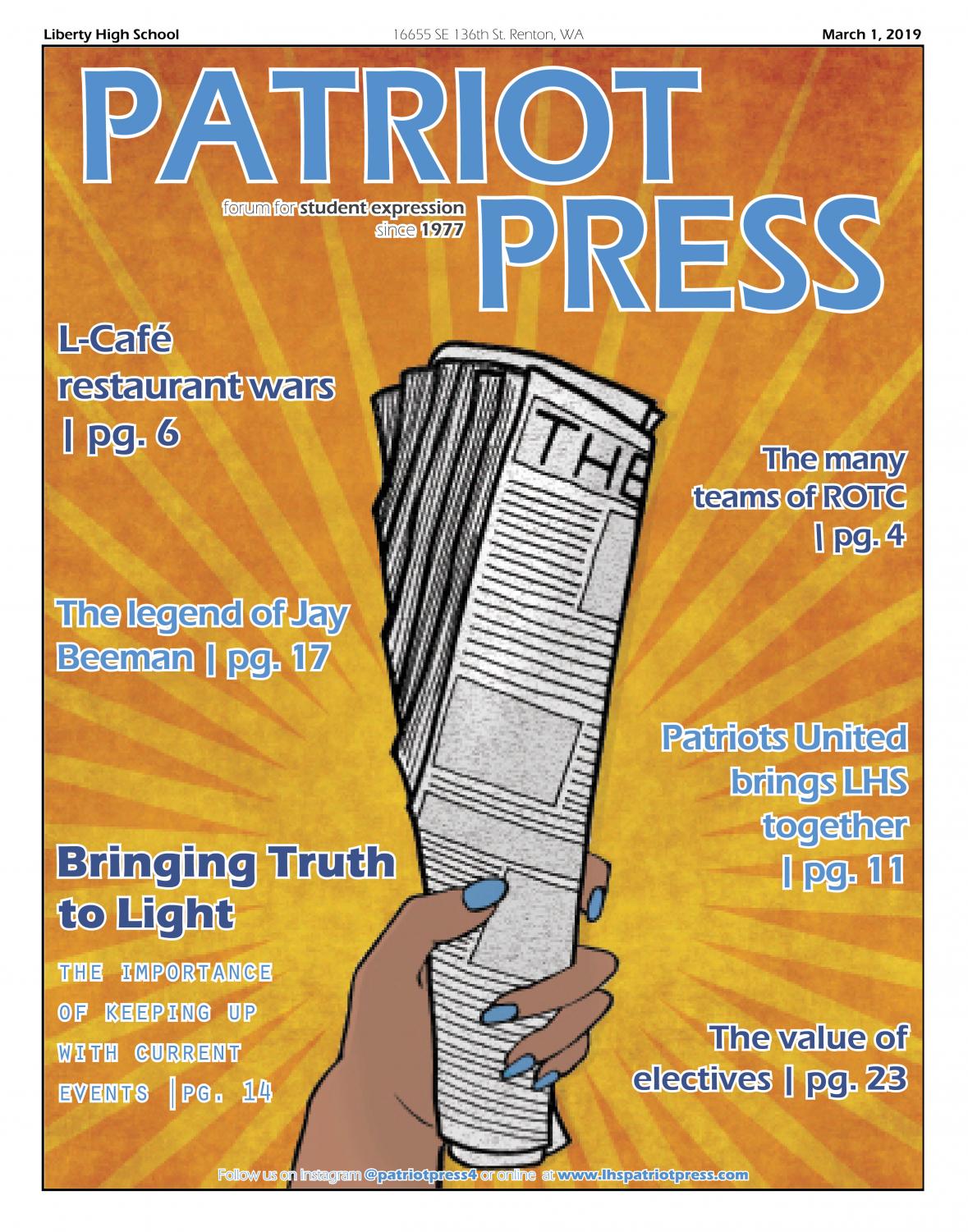Journalism: a dying art
Journalism has been one of the foremost ways of exercising the right to free speech for centuries, and for good reason. But now, even though the Internet allows us to share and access news with unprecedented speed, there is no denying the fact that trusted, fact-checked news is on the decline. With newspaper after newspaper filing for bankruptcy, how can we ensure that the true value of journalism is not lost amidst the condemnations of fake news, clickbait, and—perhaps worst of all—irrelevancy?
March 1, 2019
WHY WE DON’T READ
Welcome to the Feature on why people don’t read the Feature… or, stated less passive-aggressively, why  many people don’t value the importance of reading the news in general.
many people don’t value the importance of reading the news in general.
Social studies teacher Steve Darnell believes technology lies at the heart of the issue.
“When newspapers and magazines were the sole source of news, they came out periodically, so you were more inclined to reference them,” he said. “Now, information is so fluid on an minute-by-minute basis that its value is more entertainment-based.”
By entertainment, he specifically means social media platforms, such as Facebook, Instagram, and  YouTube. “People are still accessing the news,” he said, “but in a way that’s oriented around themselves, as opposed to world events.” Junior Natalie Crouse agrees that people value social news feeds more because of its direct, personal impact. “Whatever is current to you is what is important to you,” she explained. “Worldwide news doesn’t always seem to concern us.”
YouTube. “People are still accessing the news,” he said, “but in a way that’s oriented around themselves, as opposed to world events.” Junior Natalie Crouse agrees that people value social news feeds more because of its direct, personal impact. “Whatever is current to you is what is important to you,” she explained. “Worldwide news doesn’t always seem to concern us.”
Finding a balance to keep up with both can be difficult, but Crouse makes it work. She flips through stories from major news sites using the “Stay Tuned” feature of Snapchat every day, while keeping up with the news of her friends at the same time. “I also just ask people what’s going on,” she said.
Another reason why people don’t read the news is because of how politically opinionated it is, as sophomore Raquel Rossi believes.
 “People believe that if they’re reading an article about a different political side, it could be cheating on their own side. But there’s no way to combat bias,” she said. “You just have to accept that it’s a factor, and not be turned away by it.”
“People believe that if they’re reading an article about a different political side, it could be cheating on their own side. But there’s no way to combat bias,” she said. “You just have to accept that it’s a factor, and not be turned away by it.”
“That’s why it’s important to be able to decipher through what is accurate and was what is fake or biased news,” Chris Gapinski, Liberty’s DECA teacher, said.
WHY WE SHOULD READ
But why is it even important to keep up with current events through journalism? If over 53.7% of Liberty students just can’t find time to read in their schedule, wouldn’t they be better off focusing on what really matters to them?
Rossi disagrees. “Everything that happens is going to trickle down and in some way affect you, even it it’s just a random policy,” she said.
For senior Dylan Kostadinov, a stock-trading enthusiast, he feels this trickle-down effect personally. “When people hear a good piece of news, they tend to flock toward the stocks affected by that news,” he said. “As an investor, that’s important for me to know when I’m considering what the stock market trends might be.”
But even dated news helps stock investors. “If you are going to invest, you need to understand the background of your company,” Gapinski said. “Information is power. It gives you the power to make informed decisions.
That doesn’t mean current events don’t affect the rest of us. In fact, U.S. Government and Politics teacher Amy Cooke even requires her students to present current events as they happen. It all leads back to being a well-informed citizen.
“It’s important to know what our current lawmakers are up to, even if students don’t see how specific decisions will affect them,” she said.
“The more you keep up, the better position you’ll be in to to make your own choices about how you see things,” Darnell said on the same note.
One specific choice students will soon be able to make is how to vote. “We should know what’s going on so that we can make an informed decision on who and what we vote for,” junior Hannah Mattson said.
“There is nothing worse than an uninformed voter,” Gapinski agreed with a smile.
Not only does physically reading news, as opposed to watching it or listening to it, build a strong vocabulary, as Mattson believes, but it also develops critical thinking skills.
“It’s convenient when you’re watching a video-based information source, but there is a filter on it: an edutainment value that makes it more interesting,” Darnell said. “However, when you read something, you have to decipher meaning, which takes effort but is much more in line with being a critical thinker.”
Written news is also more inclined to offer depth of information. “News sources don’t want to show anything really long on a video now,” English teacher Daughters said. “They only have short clips that only give a part of the story or a shallow look at an issue.”
It won’t be easy trying to counteract the current decline of news, whether it be because of turn-offs such as the fear of fake news, the unwillingness to give up time to follow current events, or the pull of social news that pertains to us directly. In many cases, we may not even be aware that we are choosing other sources of information.
For a Liberty-focused example, Darnell asked, “Why don’t we have a Patriot Press reading altered schedule while we have one to watch LSN?”
It’s a good question, one that journalism students haven’t even considered. But perhaps by carefully recognizing it, as well as the day-to-day decisions that prevent us from keeping up with current events, we can create a Liberty community that is more educated, more cultured, and more inclusive.
If you’ve made it this far, congratulations! You are in the top 52% of Patriots who actually read the Feature section. We salute you for it.
